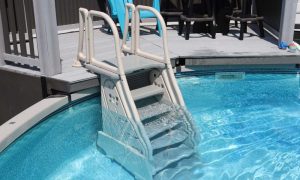By Tom Soukup
If a facility wants to replace its old, standard efficiency pool heaters with new, higher efficiency appliances, then it’s wise to choose a contractor that has a good understanding of the challenges of pool heating and understands the differences between condensing and conventional gas-fired appliances.
In the Mid-Atlantic region and Northeast, shoulder seasons are variable. Many pool companies also serve large metropolitan areas where outdoor pools and spas may be open year-round or for up to three seasons. The potential for fuel savings through upgrading heating appliances is enormous in such cases.
What does a British Thermal Unit (BTU) mean?
It is important to understand what a BTU actually is before diving into the details. A BTU is a measure of the energy required to raise 3.8 litres (1 gal) water by
Water weighs 8.3 kg (3.8 kg) per 3.8 L (1 gal). This article uses accurate averages and round numbers to keep it simple.
In relation to the conversion of pools, it takes 833,000 BTUs in order to increase the temperature by 0.55 C (1F) for a pool that is 378,541 litres (100,000 gal). The evaporation and heat loss from the surface or shell of a pool, as well as associated piping, are not included in this calculation.
It is almost impossible to calculate the efficiency of an existing pool heating system when you take into account all of the variables. These include outdoor ambient temperatures, wind, temperature of the ground, etc. There is an easier way to assess the efficiency of a pool heating system and determine potential energy savings with a retrofit.
Calculating efficiency
The decision to upgrade your vehicle or not may be heavily influenced by the fuel savings you can expect.
This is how to calculate the fuel efficiency of your existing heating system. This method is effective even if you don’t know the historical gas or liquid petroleum (LP), which can be a problem because the meter or tanks that serve the system also serve space heating, commercial kitchens, domestic hot-water production, etc.
The post Calculating Pool Heater Efficiency and Potential Retrofit Savings appeared initially on Pool & Spa Marketing.








